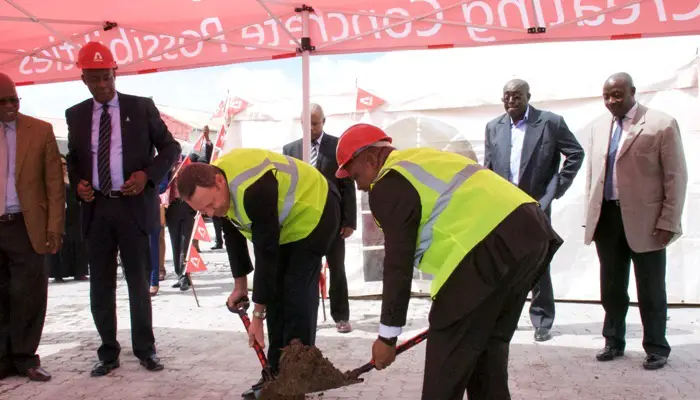Leading cement supplier AfriSam recently commissioned a new cement plant in Lesotho to help in blending and packing a first in the country.
Lesotho’s Prime Minister Dr. Pakalitha Mosisili, speaking at the official opening of new cement plant in Lesotho earlier on this year, hailed the plant as a ‘significant milestone’ for the region and a boost for local socio-economic development.
The capacity of the plant – over 200,000 tons a year of bagged cement – will meet the current local cement demand, while also being capable of producing specialised products for large infrastructure projects like the Lesotho Highlands Water scheme.
The main raw material for new cement plant in Lesotho plant – milled clinker – is railed to Maseru in bulk from AfriSam’s Ulco facility near Kimberley. This is beneficiate with pulverised fuel ash (PFA) from Lethabo power station near Vereeniging in the Free State province.
According to AfriSam’s manager – strategic projects, Gavin Venter, the plant includes a sophisticated dual batch weighing system to accurately dose the milled clinker and the mineral components to predetermined ratios in the manufacture of the different cement products.
The plant has been designed to produce the standard range of products most commonly used by local customers, including AfriSam High Strength Cement (52,5 N) for specialist concrete applications; AfriSam All Purpose Cement (42.5 N) for concrete work, block-making, plaster work and other applications; AfriSam Roadstab Cement (32.5 N) for road stabilization; and AfriSam Starbuild (32.5 N) for applications not requiring high early-strength development.
The plant’s packing system is a 60 ton per hour, four spout in-line European design, utilized in series with a robotic arm palletizer to pack and stack the cement bags. Two stretch-wrap machines cover the palletized cement bags with a waterproof cover, so they do not need to be stored under cover; this also facilitates loading and unloading operations at the plant and larger customer sites.
Venter adds that environmental issues have been stringently addressed by equipping the plant with dust filters that prevent the generation of dust and create a dust-free operation.
During the construction of the plant – most of which was completed within six months – AfriSam made extensive use of local service providers and suppliers, including architects and civil contractors; local workers were also employed during the construction process. Looking ahead, the company has plans for the plant to become a significantly larger cement manufacturing facility.

Leave a Reply